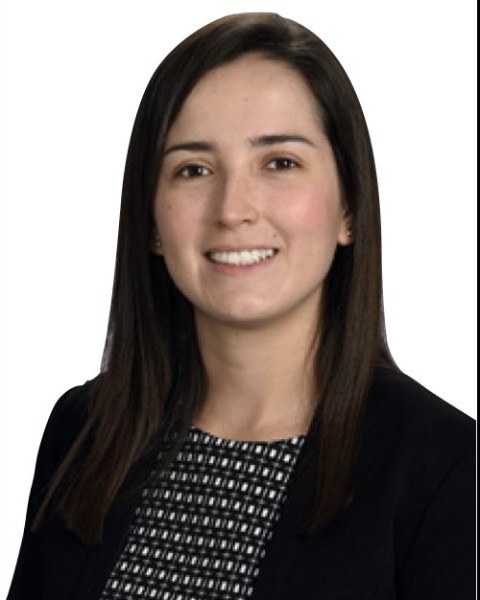Back
Child Abuse & Neglect
Category: Abstract Submission
Child Abuse & Neglect II
235 - Lost in translation: improving communication of child maltreatment topics with Spanish-speaking caregivers
Monday, April 25, 2022
3:30 PM – 6:00 PM US MT
Poster Number: 235
Publication Number: 235.402
Publication Number: 235.402
Maria Aldana Sierra, Children's Hospital of Philadelphia, Philadelphia, PA, United States; Katherine Yun, Children's Hospital of Philadelphia, Philadelphia, PA, United States; Priscilla M. Ortiz, Children's Hospital of Philadelphia, Philadelphia, PA, United States; Colleen Bennett, Perelman School of Medicine at the University of Pennsylvania, Philadelphia, PA, United States; Cindy W. Christian, Perelman School of Medicine at the University of Pennsylvania, Philadelphia, PA, United States; Joanne Wood, The Children's Hospital of Philadelphia (CHOP) - - Philadelphia, PA, Philadelphia, PA, United States

Maria C. Aldana Sierra, MD (she/her/hers)
Child Abuse Pediatrician
Phoenix Children's Hospital
Chandler, Arizona, United States
Presenting Author(s)
Background: Effectively communicating concerns regarding child maltreatment and involvement of child welfare services to families can be challenging, especially when there are language and cultural differences. One in five children in the US is Hispanic and 44% of them have at least one parent with limited English proficiency. In 2019 in the US, 23.5% of maltreated children were Hispanic. However, there is limited literature on Spanish-speaking caregivers’ perceptions and preferences regarding communication about child maltreatment with medical providers.
Objective: To explore how Spanish speaking, immigrant caregivers perceive child maltreatment topics and to inform development of approaches to improve effective communication of these concerns by clinicians and medical interpreters.
Design/Methods: Semi-structured, open-ended interviews were conducted via telephone or in-person with Spanish speaking caregivers of children under the age of 19 years seeking emergency or inpatient medical care at a large urban pediatric hospital. Subjects were purposively sampled. Interviews were recorded and transcribed. Rapid qualitative analysis guided by a modified grounded theory approach was conducted. Pre-set domains included definitions, child maltreatment reporting practices; perceptions of interplay between immigration status and US child welfare system; preferred words for discussing child maltreatment topics; and advice to improve communication.
Results: The sample to date includes 8 mothers and one father. Most participants (56%) were in the 26–45-year-old range. Countries of origin included Mexico, Guatemala, and the Dominican Republic. The mean time in the U.S was 11.5 [0.4-21] years. Results to date show the following themes: 1) Financial and discrimination barriers to reporting and investigating; 2) Worries about impact of involvement with child welfare services on immigration status; 3) Unique challenges for undocumented parents in child welfare investigations; 4) Discomfort with words used to describe genitalia; 5) Bilingual providers and skilled interpreters as key interventions for improving communication; 6) Cultural differences in defining child maltreatment; 7) Respect for medical providers and confidence in investigation processes in the US.Conclusion(s): Findings offer rich and multilayered insights into the complexity of providing effective and culturally sensitive services to Spanish speaking families. This work will support guidelines, recommendations, and toolkits for improving communication with Spanish speaking families.
CV Maria Aldana SierraCV Aldana Sierra January 2022.pdf
Objective: To explore how Spanish speaking, immigrant caregivers perceive child maltreatment topics and to inform development of approaches to improve effective communication of these concerns by clinicians and medical interpreters.
Design/Methods: Semi-structured, open-ended interviews were conducted via telephone or in-person with Spanish speaking caregivers of children under the age of 19 years seeking emergency or inpatient medical care at a large urban pediatric hospital. Subjects were purposively sampled. Interviews were recorded and transcribed. Rapid qualitative analysis guided by a modified grounded theory approach was conducted. Pre-set domains included definitions, child maltreatment reporting practices; perceptions of interplay between immigration status and US child welfare system; preferred words for discussing child maltreatment topics; and advice to improve communication.
Results: The sample to date includes 8 mothers and one father. Most participants (56%) were in the 26–45-year-old range. Countries of origin included Mexico, Guatemala, and the Dominican Republic. The mean time in the U.S was 11.5 [0.4-21] years. Results to date show the following themes: 1) Financial and discrimination barriers to reporting and investigating; 2) Worries about impact of involvement with child welfare services on immigration status; 3) Unique challenges for undocumented parents in child welfare investigations; 4) Discomfort with words used to describe genitalia; 5) Bilingual providers and skilled interpreters as key interventions for improving communication; 6) Cultural differences in defining child maltreatment; 7) Respect for medical providers and confidence in investigation processes in the US.Conclusion(s): Findings offer rich and multilayered insights into the complexity of providing effective and culturally sensitive services to Spanish speaking families. This work will support guidelines, recommendations, and toolkits for improving communication with Spanish speaking families.
CV Maria Aldana SierraCV Aldana Sierra January 2022.pdf
